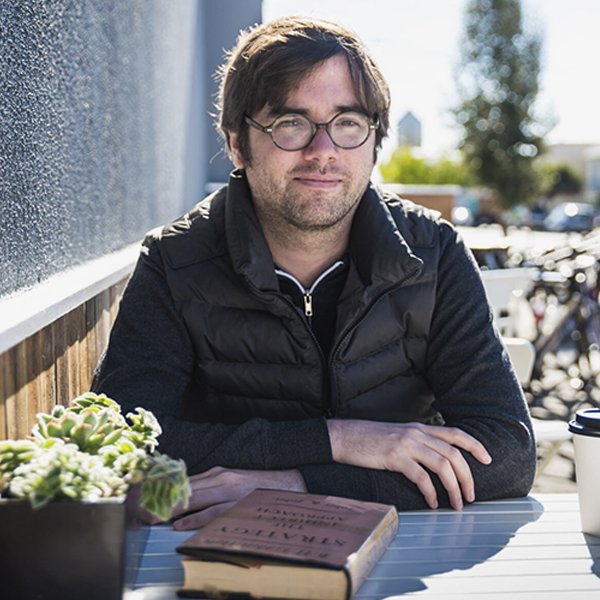For Santiago Siri, being born in
Argentina means wanting to try to change the make-up of politics and of
democracy itself. The young computer scientists sees his generation as
"digital natives and also democratic natives, after so many years of
dictatorship, it is their turn to understand how the internet and democracy are
connected". That is exactly what he is working on. He has earned his place
among the MIT Technology Review, Spanish edition’s Innovators Under 35 Latin
America 2017 winners for his career trajectory and for his visionary work to
endow activism with the digital tools to build an online democracy.
Siri’s solution is based on blockchain, the technology on which cryptocoins
such as Bitcoin have been built. It is a distributed database, which acts as an
accounting record. Every transaction is permanently recorded, if the blockchain
adds another element this information is not simply located on a single
computer, but all those who belong to the network can see it. Changing one of
these blocks secretly is impossible. Put simply, it is this feature that makes
this technology ideal as a cornerstone on which to operate a voting system,
which is what Siri has done with his platform Sovereign. Instead of monetary
transactions, his platform uses blockchain to verify the voting process on an
online participatory democracy platform.
"Implementing blockchain eliminates the need for a central authority to
verify the ballots," Siri said, which avoids "the risk of vote
tampering by those who have the power to administer voter registration."
It also makes the count completely transparent and verifiable (see Innovators
under 35 Central America 2015: Jorge García). When Sovereign is used to manage
an election, each vote is recorded in a blockchain.
Any entity "from a minimum of two people, to a global one, from the
administration of a building, a club, a trade union, a city council ..."
can use Sovereign to manage decision-making in a transparent and verifiable way,
explains the Argentine visionary. A pilot study of its use took place during
the Colombian peace agreement referendum process, when it asked Colombian
expatriates for their opinion. "This experience let us know the key
element [which reason led to the rejection of the agreement]: giving the FARC
political rights," says Siri.
Siri's relationship with digital activism goes back to 2012 when he
participated in the founding of the Net Party (Partido de la Red in Spanish).
Later he collaborated on the development of DemocracyOS, a platform for citizen
participation (see Innovators Under 35 Argentina and Uruguay 2016: Guido
Vilariño). His political experience "helped me learn a lot, but it was
also frustrating to face the more corrupt facets of the system," he
laments. In 2015 he moved to the US and founded the Democracy Earth Foundation
with the backing of Y Combinator. There he got into concepts such as liquid
democracy and technology like blockchain, which led him to conceive of and
develop Sovereign. This liquid democracy tool allows for both direct and
delegated voting.
"Citizens vote every day with Facebook likes," says the creator of
Sovereign. This social network acts as a mirror for his project, as it allows
people to express their opinion on a multitude of issues. On Facebook however,
unlike on his product, the information and its subsequent use is not
transparent. An organization using Sovereign can set out the matters on which
it is calling its constituents to vote for; who will then be able to cast their
votes, which will be counted in a secure and transparent manner, as easily as
pressing "like".
Digital advisor and partner at Peruvian marketing agency Quántita and
Innovators Under 35 Latin America 2017 jury member, Dino Zolezzi believes that
the use of blockchain to scrutinize policy-making "is a very creative idea
and speaks volumes about Siri's ability to identify new tools and technologies
which can solve society’s problems”.




